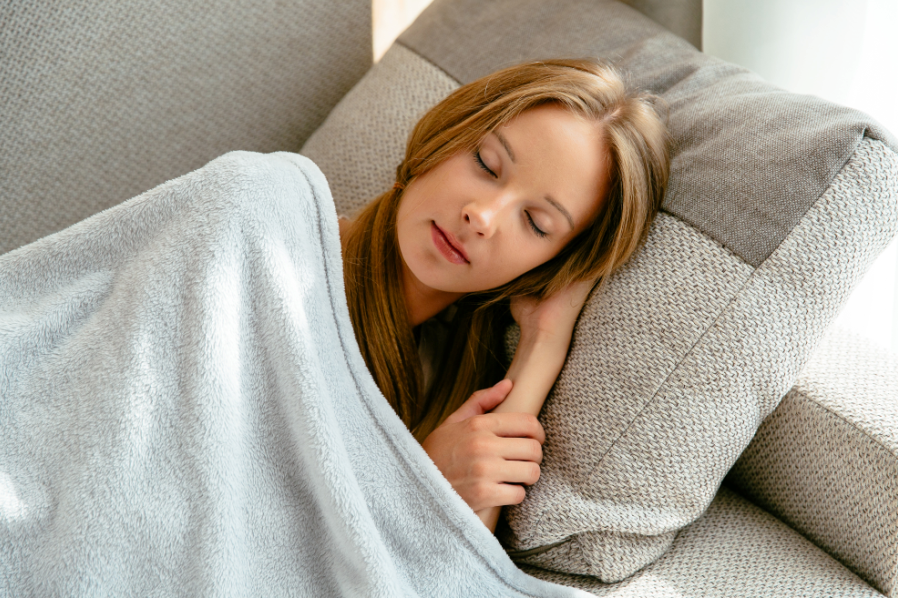
All too often, sleep is considered as something that has to be squeezed into a hectic schedule, as opposed to the precious and restorative process that it should be. This is a problem because a lack of sleep can cause numerous health problems that go far beyond the irritability and low energy experienced the day after a sleepless night.
Among the common health factors impacted by sleep, one of the most important is your mental health.
Sleep and Mental Health
Sleep disruption has a negative effect on neurotransmitters and increases the production of stress hormones. This impairs critical thinking as well as the regulation of emotions. In turn, psychiatric disorders such as anxiety, bipolar disorder, ADHD, and depression, are amplified by impulsive behavior and other heightened symptoms.
Sleep lessens symptoms of depression
According to research, 65% to 90% of adult patients with depression and 90% of children with depression experience some type of sleep problem. Study shows that insomnia and other sleep-related issues tend to increase the chances of having a depression disorder.
Such cases also make it hard for the patient to respond to treatment. Lack of proper sleep by patients with depression is more likely to trigger dark moods or thoughts than to people who can usually sleep. Observing a regular sleeping routine enables one to have strong mental health, and it becomes easier to deal with cases of depression.
Reduces stress
The more you lack sleep, the more irritable or prone to stressors you become; you may find that you react negatively even to minor interruptions and annoyances. According to a study by the American Psychological Association, adults who have less than eight hours of sleep are more likely to encounter stress symptoms. When you get proper rest, you tend to deal with and manage emotions better.
Improves anxiety disorders
Over 50% of patients with a generalized anxiety disorder are affected by sleep problems. For instance, people who have insomnia are at a higher risk of developing anxiety. However, it is worth noting that insomnia can worsen anxiety disorder symptoms. In other cases, it can prevent recovery altogether. A patient with post-traumatic stress disorder who experiences sleep disruptions is more likely to retain negative emotional memories. This prevents patients from getting better even with fear-extinguishing therapies.
Getting Quality Sleep
While poor sleep can lead to deteriorating mental health, restorative sleep is highly effective for the improvement and prevention of mental health disorder symptoms.
Basic self-care is easily neglected in our busy world. However, without it, your sleep will be disrupted more than you know. Establish a nightly wind-down routine to prep your body and mind for a good night’s sleep. Turn off tech devices an hour before bedtime and engage in relaxing activities, such as meditation, a warm bath, reading, or journaling.
Finally, it’s worth noting that sleep needs vary from one individual to another. For adults, seven to eight hours of sleep prove to be sufficient while children and teenagers need more sleep time. No matter your age, make sure that you are making sleep a priority in your and your family’s life as a lack of sleep can have severe impacts on both your mental and physical health.
If sleep isn’t coming naturally for you, consider a few natural sleep remedies, or seek advice from a sleep expert in order to tackle your sleep challenges and boost your mental health and quality of life.
You may also like
8 Stretches for Your Best Night’s Sleep [Infographic]
The Natural Guide to Better Sleep
25 Foods That Make Falling Asleep Easier [Infographic]
3 Tips to Get You Sleeping Again [Infographic]
